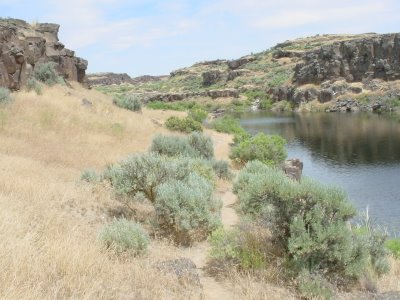 With temps in the mid-70's, no wind, and FINALLY some sunshine, George and I drove over to the Columbia Wildlife Refuge for some canoeing. We found two lakes, the Hamptons, and spent about three hours gliding all around them.
With temps in the mid-70's, no wind, and FINALLY some sunshine, George and I drove over to the Columbia Wildlife Refuge for some canoeing. We found two lakes, the Hamptons, and spent about three hours gliding all around them.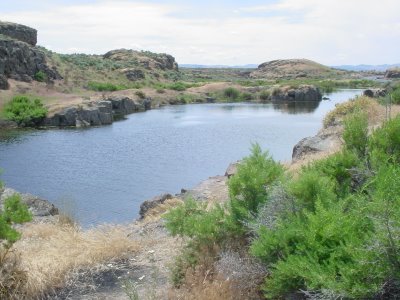
This is some fairly remote country - with just the occasional call of meadowlarks.... and about 13 million frogs, all choir practicing at once. They line all the water edges. As we paddled, they'd jump into the water with a screech, and scoot down under the water.
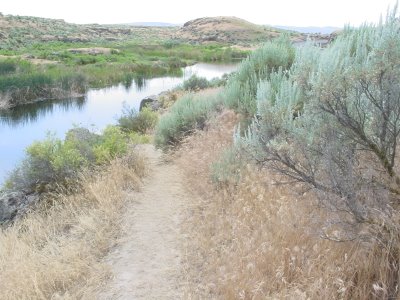 Eastern Washington is completely dried out, with the most beautiful beige grasses covering the prairie. We walked along some foot-trails, to check out canoe put-in places, and found a nice place to have our lunch.
Eastern Washington is completely dried out, with the most beautiful beige grasses covering the prairie. We walked along some foot-trails, to check out canoe put-in places, and found a nice place to have our lunch.Some of the backroads wander through pasturelands, unfenced. Camping is allowed in many locations, but, there are a few large animals grazing that I wouldn't want poking their head in my tent.
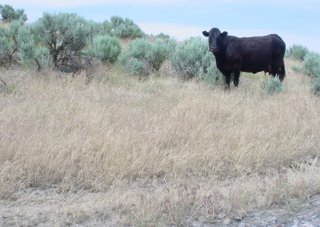
These cattle were down in ravines, up on bluffs, and grazing along the road. We gave them lots of room. Lots of little calves....
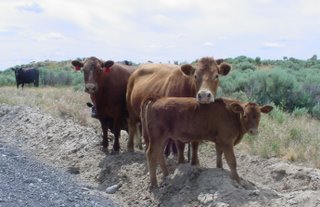
We portaged from Lower Hampton to Upper Hampton Lake, carrying the canoe only about 40 feet. This last lake was more remote, less used, and the water was completely clear, with the most exquisite aquatic life on the bottom. The oxygen bubbling up in the water was so pervasive, that it looked like someone had opened a bottle of Sprite. The surface of the water was covered in tiny bubbles.
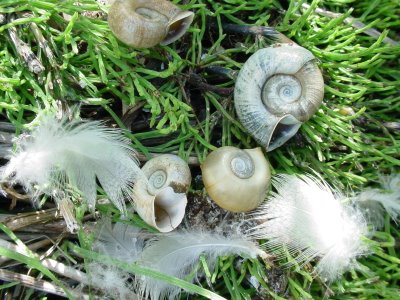 We paddled around the shoreline, and I found snails and old bones from a deer skeleton.
We paddled around the shoreline, and I found snails and old bones from a deer skeleton.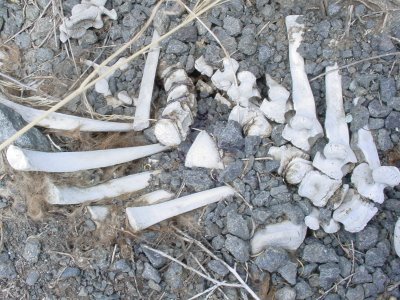
One of the most practical plants on the prairie this time of year is Mullen. It stays green all summer, and has the softest, fluffiest texture.
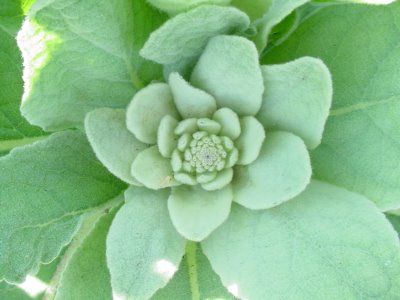 I call it 'Charmin', and yes, the Natives used it for that purpose.
I call it 'Charmin', and yes, the Natives used it for that purpose.The Columbia Wildlife Refuge is a haven for many species of birds. We were able to videotape cliff-swallow nests, but stayed at a distance, because the eggs had hatched and the swallows were flying frantically all around us to keep us away. Yellow-headed blackbirds and red-winged blackbirds were nesting, and the males were calling a lot of attention to themselves, distracting us with their calls.
It takes about 3 hours to drive home, going over the Snoqualmie Pass, which has lost most of it's snow. When we got home at 9:00, most of the family was there, hunkered down in the den, watching a Jim Carrey movie, "When Nature Calls". It took me awhile to adjust, from the vista and silence of vast desert, to the jungle and antics of Carrey, an "alligator-wrasslin', elephant-calling, monkey-shining, loogie-launching, burning coals-crossing, disguise-mastering pet detective".
As George would say, "It's a post-modern world!"